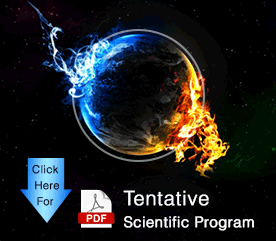
Karina I Paredes Páliz
Departamento de MicrobiologÃa y ParasitologÃa, Facultad de Farmacia, Universidad de Sevilla. Profesor GarcÃa González, 2, 41012-Sevilla, Spain.
Title: Use of bacterial consortia isolated from the rhizosphere of Spartina sp. to reduce the climate change impacts on salt marsh vegetation contaminated by heavy metals
Biography
Biography: Karina I Paredes Páliz
Abstract
Ecosystems worldwide are experiencing the effects of climate change, and estuaries and salt marshes are no exceptions. Climate change can affect salt marshes in a number of ways. One of the greatest effects of climate change in salt marshes areas is the increase in the frequency of dry periods, where levels of accumulation of heavy metals reach critical values. Being highly productive, the plant community will be one of the most affected elements by these climatic shifts, both in terms of structure and dynamics, with undeniable effects on its productivity. Our aim was proposing a plant-bacteria association for phytoremediation of polluted salt marshes (Odiel, SW Spain), in order to reducing the effects of climate change associated with the accumulation of metals For this purpose, three autochthonous bacterial strains (gram negative Pantoea agglomerans RSO6 and RSO7, together with gram positive Bacillus aryabhattai RSO25), were previously selected on the basis of metal resistance and biosorption, plant growth promoting properties and the capacity to form biofilms. This work advances a step forward, by using them as inoculants for the halophyte Spartina densiflora. All three bacteria, particularly Pantoea strains, promoted plant growth on polluted sediments. Moreover, they mitigated metal stress, as revealed from physiological parameters, such as, functionality of the photosynthetic apparatus (PSII) and maintenance of nutrient balance. However, whereas gram negative strains did not significantly affect metal accumulation in plants, the gram positive bacterium enhanced metal accumulation in roots, without further loading to shoots. Our results confirm the possibility of modulating plant growth and metal accumulation in polluted sediments upon inoculation with selected bacteria, as well as the suitability of halophyte-rhizobacteria interactions as a biotechnological tool for metal phytostabilization of salt marshes, thus preventing the risk of metal transfer to the food chain.

